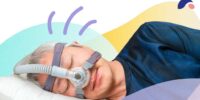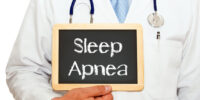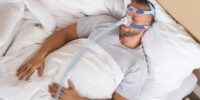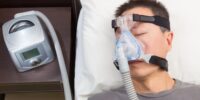How To Handle Sleep Apnea Relapses And Challenges?
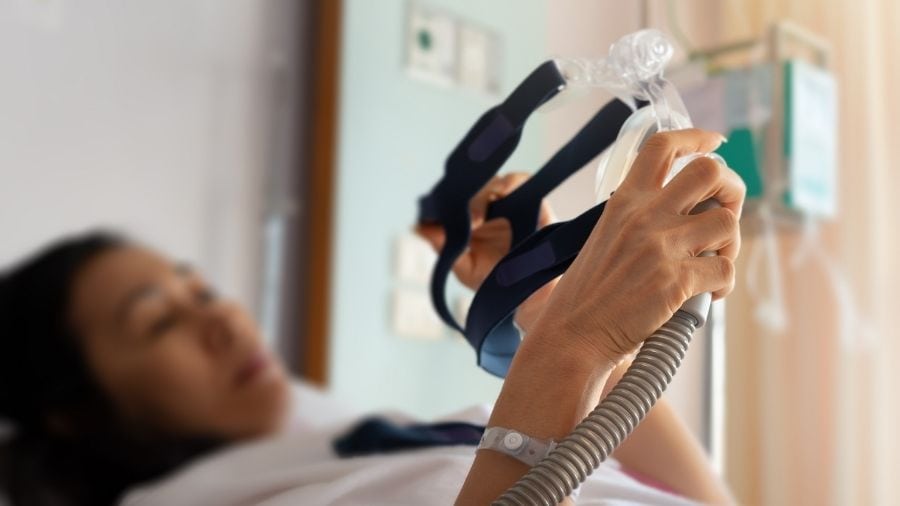
Sleep apnea is a common sleep disorder characterized by pauses in breathing or shallow breathing during sleep. While effective treatment options are available, some individuals may experience relapses or face challenges in managing their condition. Recognizing the signs of a sleep apnea relapse is crucial in order to address the issue promptly. Consulting with a sleep specialist is recommended to assess the severity of the relapse and make necessary adjustments to the treatment plan.
Additionally, maintaining a consistent sleep schedule and practicing good sleep hygiene can contribute to better sleep quality. Managing stress and anxiety, staying active, and maintaining a healthy lifestyle are also important factors in managing sleep apnea.
Lastly, staying positive and persistent is key in overcoming challenges and maintaining a successful treatment regimen. By following these steps, individuals can effectively handle sleep apnea relapses and challenges.
Key Takeaways
- Recognizing the signs of a sleep apnea relapse is crucial for prompt addressal.
- Consulting with a sleep specialist is recommended to assess the severity of the relapse and make necessary adjustments to the treatment plan.
- Maintaining a consistent sleep schedule and practicing good sleep hygiene contribute to better sleep quality.
- Managing stress, staying active, and maintaining a healthy lifestyle are important factors in managing sleep apnea.
Recognize the Signs of a Sleep Apnea Relapse
The identification of symptoms indicative of a relapse of sleep apnea is crucial in order to promptly address the potential challenges and effectively manage the condition.
Sleep apnea is a serious sleep disorder characterized by repeated pauses in breathing during sleep, resulting in disrupted sleep patterns and daytime fatigue.
When the symptoms of sleep apnea return after a period of remission or improvement, it is considered a relapse.
Common signs of a relapse include loud snoring, gasping or choking during sleep, excessive daytime sleepiness, morning headaches, and difficulty concentrating.
It is important for individuals with sleep apnea to be aware of these signs and seek medical attention if they experience any relapse symptoms.
Prompt recognition and management of a sleep apnea relapse can help prevent further complications and improve overall quality of life.
Consult with Your Sleep Specialist
Consultation with a sleep specialist is integral in addressing sleep apnea relapses and overcoming associated difficulties. Sleep specialists possess the expertise and knowledge required to assess the severity of the relapse and determine the appropriate course of action.
They can conduct a thorough evaluation to identify the potential causes of the relapse, such as changes in weight, medication use, or the presence of other medical conditions. Through a comprehensive examination, they can also evaluate the effectiveness of the current treatment plan and make necessary adjustments.
Additionally, sleep specialists can provide guidance on lifestyle modifications, such as weight loss or exercise, that can help manage sleep apnea and reduce the risk of relapses.
Overall, consulting with a sleep specialist is crucial in effectively managing sleep apnea relapses and improving overall sleep quality.
Adjust Your Treatment Plan
To effectively manage recurring sleep apnea symptoms, it is necessary to make adjustments to the treatment plan. Sleep apnea is a chronic condition that requires ongoing management, as relapses and challenges may arise over time.
When a relapse occurs, it is crucial to consult with a sleep specialist to evaluate the effectiveness of the current treatment plan. The specialist may recommend modifications such as adjusting the pressure settings on a continuous positive airway pressure (CPAP) machine or trying a different type of mask.
Additionally, lifestyle changes like maintaining a healthy weight, avoiding alcohol and sedatives, and sleeping in a proper position can contribute to better symptom management.
It is important to continuously monitor symptoms and communicate any changes or concerns with the sleep specialist to ensure a tailored and effective treatment plan.
Maintain a Consistent Sleep Schedule
Maintaining a consistent sleep schedule is an essential aspect of effectively managing recurring symptoms of sleep apnea. By sticking to a regular sleep routine, individuals with sleep apnea can help regulate their body’s internal clock and improve the quality of their sleep. This can be achieved by going to bed and waking up at the same time every day, even on weekends. Consistency in sleep patterns helps to synchronize the body’s natural circadian rhythm, which plays a crucial role in promoting restful sleep. Additionally, maintaining a consistent sleep schedule can also aid in the effectiveness of other sleep apnea treatments, such as continuous positive airway pressure (CPAP) therapy. Individuals who adhere to a consistent sleep schedule are more likely to experience improved sleep quality and better overall management of sleep apnea symptoms.
| Pros | Cons |
|---|---|
| Improved sleep quality | Initial difficulty in adjusting sleep schedule |
| Better synchronization of circadian rhythm | Potential disruption during travel or special occasions |
| Enhanced effectiveness of sleep apnea treatments | Requires discipline and commitment |
| Overall better management of sleep apnea symptoms | May take time to see noticeable results |
Practice Good Sleep Hygiene
Implementing good sleep hygiene practices can significantly contribute to the management of sleep apnea symptoms. By adopting these habits, individuals with sleep apnea can improve the quality of their sleep and reduce the likelihood of relapses.
Here are three important sleep hygiene practices:
- Establish a bedtime routine: Going to bed and waking up at consistent times helps regulate the body’s internal clock. This promotes better sleep quality and reduces the likelihood of interruptions during sleep.
- Create a comfortable sleep environment: A cool, dark, and quiet bedroom can facilitate deep and uninterrupted sleep. Investing in a supportive mattress, using blackout curtains, and minimizing noise distractions can greatly enhance the sleep environment.
- Limit exposure to stimulating activities before bed: Avoiding screens, such as smartphones and laptops, for at least an hour before bed can help relax the mind and prepare it for sleep. Engaging in relaxing activities, such as reading or taking a warm bath, can also aid in winding down before sleep.
By incorporating these practices into their daily routine, individuals with sleep apnea can better manage their condition and improve their overall sleep quality.
Manage Stress and Anxiety
This paragraph discusses two key points for managing stress and anxiety: trying relaxation techniques and seeking support from loved ones.
Relaxation techniques, such as deep breathing exercises and meditation, can help individuals reduce stress and anxiety by promoting relaxation and calmness.
Seeking support from loved ones, such as family and friends, can provide emotional comfort, understanding, and a sense of belonging, which can help individuals cope with stress and anxiety more effectively.
Try Relaxation Techniques
Relaxation techniques, such as deep breathing exercises and progressive muscle relaxation, can be employed as effective strategies to alleviate the challenges associated with sleep apnea relapses. Deep breathing exercises involve taking slow, deep breaths, focusing on inhaling and exhaling fully. This can help reduce stress and anxiety, promoting relaxation and better sleep. Progressive muscle relaxation, on the other hand, involves tensing and then releasing different muscle groups, promoting a sense of calmness and easing tension in the body. By incorporating these techniques into a daily routine, individuals with sleep apnea can potentially improve their sleep quality and reduce the frequency of relapses. It is important to note that relaxation techniques should be used in conjunction with other recommended treatments for sleep apnea, such as continuous positive airway pressure (CPAP) therapy or oral appliances.
| Pros | Cons | |||
|---|---|---|---|---|
| Easy to learn and practice | Results may vary for individuals | |||
| Can be done anywhere | Requires regular practice | |||
| No cost involved | May not be effective for everyone | Can be done anywhere | Requires regular practice | |
| No cost involved | May not be effective for everyone | |||
| Can improve flexibility and strength | Takes time to see significant results |
Seek Support from Loved Ones
Seeking support from loved ones can provide individuals with sleep apnea with the necessary emotional and practical assistance to navigate the difficulties associated with managing their condition.
The challenges of sleep apnea can be overwhelming, and having the support of family and friends can make a significant difference in coping with relapses.
Loved ones can offer empathy, understanding, and encouragement, which can help individuals feel less isolated and more motivated to adhere to their treatment plan.
Additionally, practical support from loved ones can involve helping with household chores or childcare responsibilities during periods of fatigue or assisting with transportation to medical appointments.
By seeking support from loved ones, individuals with sleep apnea can build a strong support network that can contribute to their overall well-being and treatment success.
Stay Active and Maintain a Healthy Lifestyle
Engaging in regular physical activity and adopting a healthy lifestyle are crucial elements in effectively managing sleep apnea relapses and overcoming associated challenges. Maintaining an active lifestyle can help improve overall sleep quality and reduce the severity of sleep apnea symptoms.
Additionally, adopting healthy habits such as following a balanced diet, avoiding smoking and excessive alcohol consumption, and managing stress levels can further contribute to better sleep and overall well-being.
To evoke emotion in the audience, here is an unordered list of benefits that can be achieved through staying active and maintaining a healthy lifestyle:
- Increased energy levels and improved mood
- Weight management and reduction of excess body weight
- Strengthened cardiovascular health
- Enhanced respiratory function
- Improved cognitive function and mental well-being
By incorporating regular physical activity and healthy lifestyle choices into one’s routine, individuals with sleep apnea can better manage their condition and improve their overall quality of life.
Stay Positive and Persistent
Maintaining a positive mindset and unwavering persistence are essential factors in effectively managing sleep apnea and overcoming associated obstacles.
Sleep apnea can be a challenging condition to deal with, and setbacks and relapses are not uncommon. However, staying positive and persistent can significantly contribute to successful management.
It is important to remember that setbacks are a part of the journey and should not be discouraging. Maintaining a positive outlook can help individuals stay motivated and focused on their treatment plan.
Additionally, persistence is key in overcoming challenges that may arise. This could involve regularly using a continuous positive airway pressure (CPAP) machine, attending follow-up appointments with healthcare providers, and adhering to lifestyle modifications.
By staying positive and persistent, individuals with sleep apnea can effectively navigate relapses and challenges, improving their overall quality of life.
Frequently Asked Questions
Can sleep apnea relapse be completely cured?
Sleep apnea relapse cannot be completely cured, but it can be effectively managed. Treatment options include continuous positive airway pressure (CPAP) therapy, lifestyle modifications, and surgery. Regular follow-up and adherence to treatment are crucial for long-term management.
Are there any alternative treatments for sleep apnea relapse?
There are alternative treatments available for sleep apnea relapse, such as oral appliances, positional therapy, and surgery. These options can help manage the condition and improve symptoms, but their effectiveness may vary depending on individual cases.
How long does it take to notice improvements after adjusting the treatment plan?
The time it takes to notice improvements after adjusting the treatment plan for sleep apnea can vary depending on individual circumstances. It is important to consult with a healthcare professional to assess progress and make any necessary modifications.
Can lifestyle changes alone effectively manage sleep apnea relapse?
Lifestyle changes alone may not effectively manage sleep apnea relapse. While lifestyle modifications such as weight loss, regular exercise, and avoiding alcohol and sedatives may help, they are often considered as adjunctive measures to medical treatments like continuous positive airway pressure (CPAP) therapy.
What are some common triggers that can lead to a sleep apnea relapse?
Common triggers for sleep apnea relapse include weight gain, excessive alcohol consumption, smoking, sedative use, nasal congestion, and certain medical conditions such as hypothyroidism. Identifying and addressing these triggers are crucial in managing sleep apnea relapse effectively.

